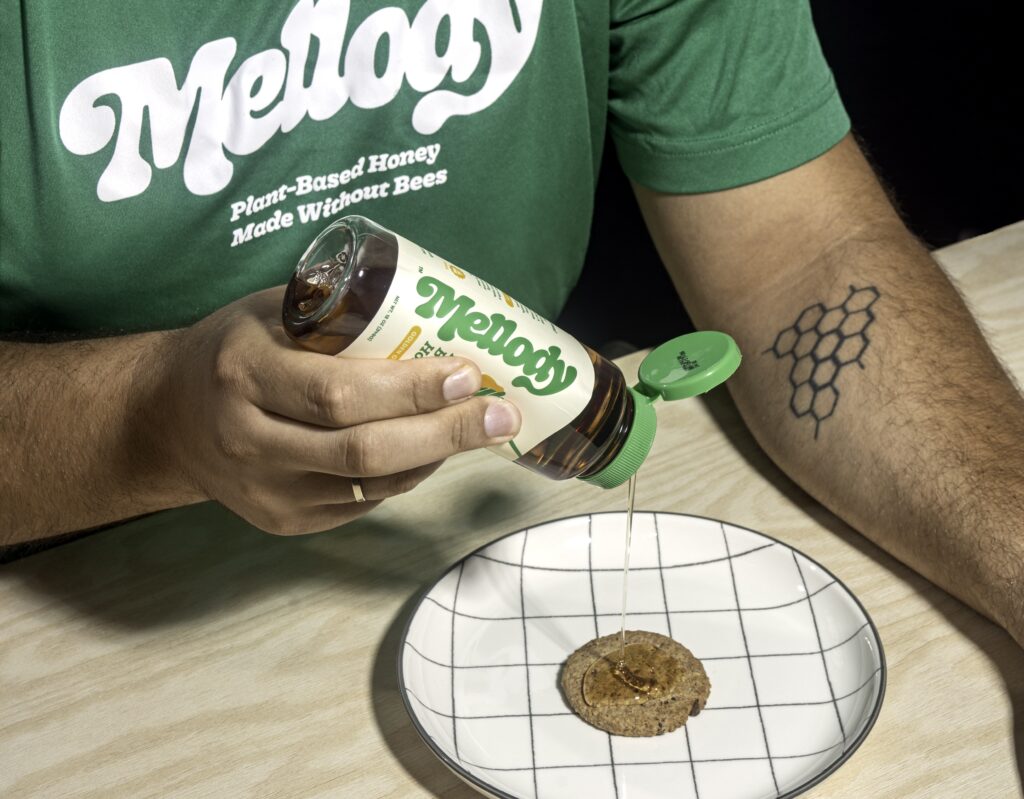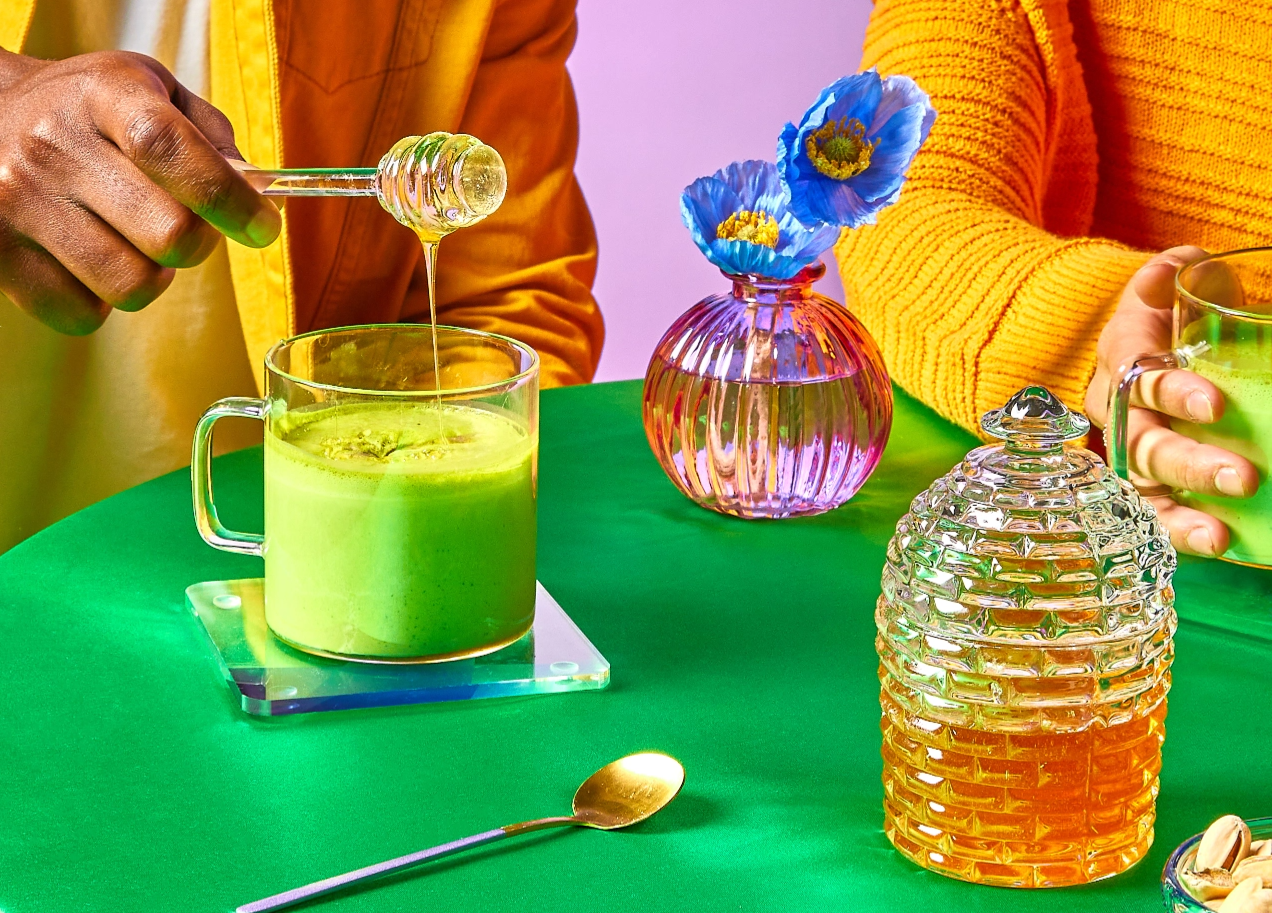4 Mins Read
Californian food tech startup MeliBio has secured a “strategic investment” as part of a pre-Series A round to accelerate the growth of its vegan honey.
As it makes inroads on its precision-fermented honey, San Francisco-based MeliBio has obtained fresh capital to scale up the distribution of its plant-based sweetener, Mellody.
The “strategic investment” from Future Food Fund by Oisix, a food tech investor from Japan, is part of MeliBio’s pre-Series A financing round. It means the company has raised around $10M in total funding since it was established in 2020, co-founder and CEO Darko Mandich tells Green Queen.
MeliBio was initially planning a Series A round this year – as revealed by Green Queen – which was expected to bring in a further $10M. But the challenges of the food tech market, where investment dropped by 61% last year, made it difficult to do so. “We shifted to [the] pre-Series A round, and will reopen Series A next year,” says Mandich.
Mellody honey now available nationwide

The startup initially launched Mellody through foodservice partners, before debuting the product in the D2C channel via a partnership with famed New York eatery Eleven Madison Park’s online store.
Since then, the product has been introduced across the US (alongside a new hot honey variety), available at independent retailers and a growing list of restaurants – recent partnerships include Palmetto Superfoods and Joyride Pizza in California and Moto Pizza in Seattle. Moreover, MeliBio has also expanded its distribution through KeHE, UNFI, Greco and Sons, and ACE Natural.
Unlike other vegan honey products, which make use of apples and lemons, elderflower, carob, or other ingredients, Mellody aims to replicate the honey through a combination of fructose and glucose, complemented by a range of plant extracts (red clover, jasmine, passionflower, chamomile, and seaberry), gluconic acid and natural flavours.
It aims to solve a key biodiversity problem. The demand for money has proliferated honey bee populations, and that has plunged wild bees into chaos. Many of the 20,000 wild bee species are endangered, and some are facing the threat of extinction, but they’re important pollinators (even better than honey bees) and protecting them is crucial for the survival of natural habitats.
This makes them a major cog in preserving the planet’s biodiversity and maintaining its ecosystem. But continued honey production spells grave trouble for these bees. And as for honey bees, their own ability to produce the sweetener itself has declined, thanks to widespread herbicide use, conversion of flower-rich land into monocultures, a drop in soil productivity, and climate change. It’s why plant-based and precision-fermented alternatives like MeliBio’s are needed.
The company, which can produce 10,000 lbs of Mellody per day, has also launched vegan honey in Europe through a partnership with Slovenia’s Narayan Foods. In the UK, this is in the form of Vegan H*ney under the Better Foodie, whereas it sells as Vegan Hanny or Ohney under Aldi’s private label, Just Veg. The $10M, four-year deal aims to put MeliBio’s vegan honey into 75,000 stores eventually. Additionally, it recently secured a patent win in Germany for its plant-based honey technology.
MeliBio makes gains in precision fermentation

MeliBio began as a precision fermentation company, and that remains its core target in the long term. The technology combines the process of traditional fermentation with the latest biotech advancements to efficiently produce compounds like proteins, flavour molecules, vitamins, pigments, or fats.
It involves inserting a molecular sequence – derived from digitised databases rather than the relevant animals or plants – into microorganisms to give them instructions to produce the desired molecule when fermented. This enables companies like MeliBio to produce bioidentical versions of animal-derived products like honey.
While its plant-based products have been expanding, MeliBio has been working on the precision-fermented product in the background, and recently made some advancements. Aaron Schaller, the startup’s co-founder and CTO, recently announced that the team has taken three of its protein and enzyme targets from ideation to proof-of-concept to bioreactors, with a fourth soon to come.
And this week, he noted that MeliBio has increased the titer – the amount of product per unit volume at the end of the fermentation process – of its main enzyme target by 1,300%. “Taking our strains from the bench to bioreactors sent our strain productivity through the roof across only two runs,” he said. “With ample room to further optimise our bioprocess, future titer and yield improvement is imminent.”
This was a result of its collaboration with AI-led biomanufacturing startup Pow.Bio, with whom it has been engaging in scale-up efforts since March. The firm is now evaluating further biomanufacturing partners for the next phase of its precision-fermented honey.
“This investment from Future Food Fund is an exciting step forward for MeliBio. It aligns perfectly with our mission to not only transform the honey industry but also to make a measurable impact on biodiversity and the environment,” says Mandich.
“At Future Food Fund, we are excited to support MeliBio’s vision of giving bees a break while offering a new model for food production through their exceptional products,” adds Hiro Hasegawa, venture partner at the VC firm.



